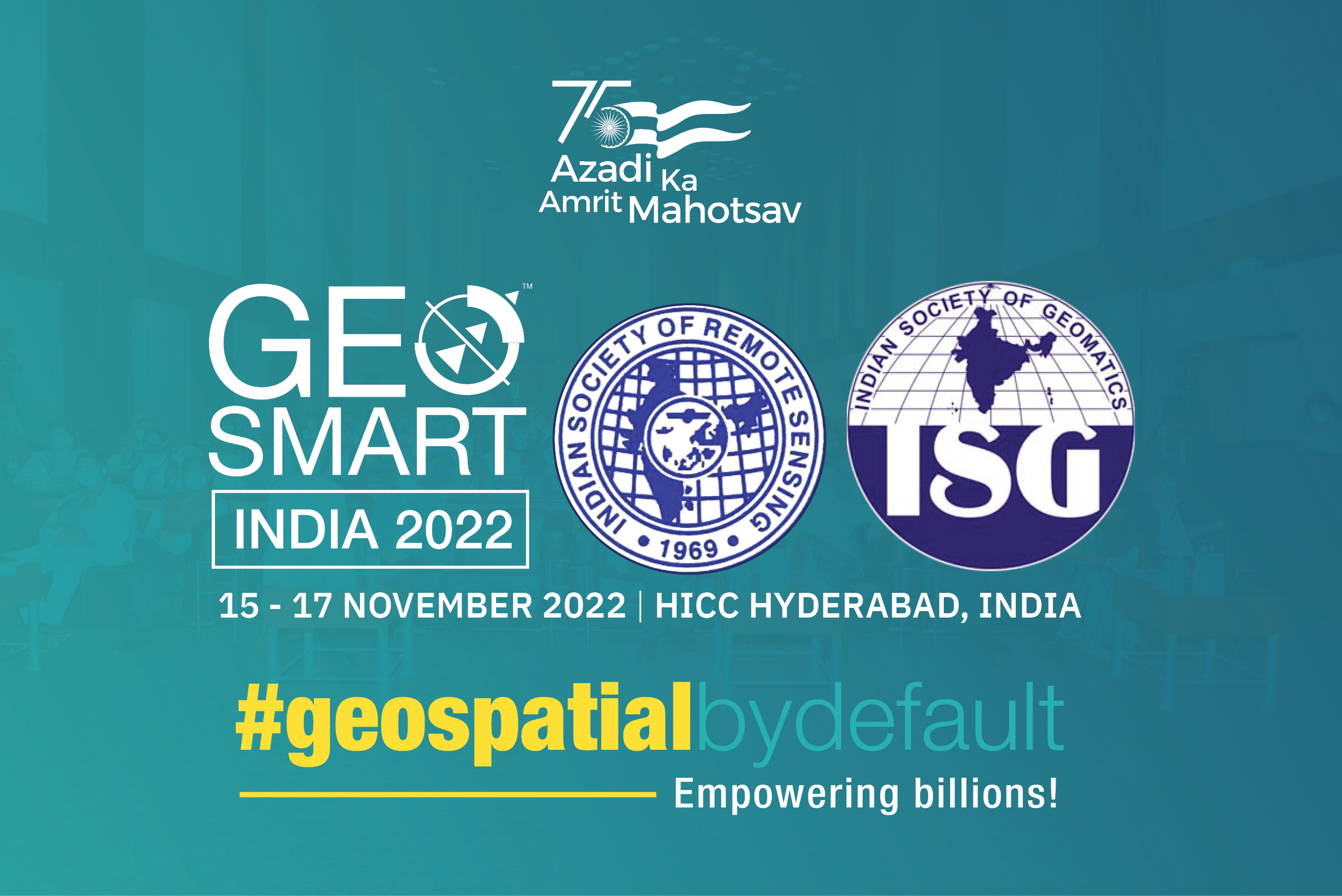GeoSmart India 2022, a three-day annual event (15-17 November 2022) on geospatial technologies, today started at Hyderabad with a keynote address by the Union Minister of Jal Shakti, Gajendra Singh Shekhawat. The theme for this year’s conference is #geospatialbydefault: Empowering Billions, and is being co-hosted by the Indian Society of Remote Sensing and the Indian Society of Geomatics.
The event aims to address some of the most challenging socio-economic issues hindering growth; facilitate networking among the geospatial community consisting of government, mapping agencies, researchers, academics, private industries, and users of geospatial information. The aim of this interaction is to foster progressive policy change.
“India is a young nation with a spirit of innovation and a strong startup base. The number of startups has almost doubled since 2021. The collection, production, and dissemination of geospatial data have been democratized. The government is committed to ‘Atmanirbhar Bharat’ and now it is our responsibility to put in efforts to make that possible,” said the union minister.
“We need to integrate different technology and enhance India’s collective geospatial capability. Nowadays, digital geospatial information provides far more value for societal, economic, and environmental use than just a simple map. It serves as an essential national information resource,” he added.
Speaking on the occasion Sanjay Kumar, CEO, of Geospatial World said, “Government of India is working on a very strategic approach of building India for tomorrow. It is trying to provide an equitable and sustainable living for 20% of the world’s population.
“This conference aligns with the national vision, as envisaged by our Prime Minister Narendra Modi, which is a collaboration between the public and private sector”, added Kumar.
“Geospatial technology is enveloping every sphere of life and that is how it is empowering billions simultaneously. There’s a need for understanding to collaborate and secure our future. Sustainability is possible, but we must change our priorities,” said Agendra Kumar, Managing Director, Esri India.
“New trends in GIS are facilitating interconnectivity and integration of all types of data. Geospatial apps are becoming pervasive, supporting many types of workflows and management. Spatial analytics are advancing and creating new insights and understanding. Advances in imagery and remote sensing are transforming all aspects of geospatial work,” added Agendra Kumar.
He also announced that Indo ArcGIS Pro, which is being hosted on a cloud in India, will be made available in India through GeM. He announced the availability of managed GIS infrastructure services.
“Digital technologies provide answers to some key industry challenges surrounding complexity. Survey and mapping profession is going to play a major role,” said Borris Skopljak, Vice President, Surveying and Mapping Strategy & Marketing, Trimble Inc.
“India is emerging as a leader in the field of geospatial technology and its application for the service of the common man. Geospatial technologies have been very successfully used in marine and coastal applications. There are several satellites dedicated to oceanography that provide valuable information on the ocean and other areas to monitor,” said Dr. M. Ravichandran from the Ministry of Earth Science.
“We are working on the launch of future satellites like the OceanSat, to be launched this year. We are also working in continuation with the previous missions of serving the oceans for various critical information, PSLV with the OceanSat. The launch of LVM3 with One Web satellite has created a huge fanfare in India’s ability to take on the commercial launch possibility of emerging small satellite constellation building,” said Dr. S. Somnath, Chairman, ISRO.
“We are going to launch another satellite vehicle in early 2023, and we hope that this will open commercial opportunities for our bigger vehicles like LVM3. We have been told that the real opening of the space sector has to happen. It cannot happen only by increasing the launch capability or building more satellites, but it will happen only when the space-based service sector is expanding. This involves the creation of user-base industries, which could innovate on the communication, remote sensing, and PNT services and merge them to produce various products and services for various sectors,” added Dr. Somnath.
About GeoSmart India
GeoSmart India is an interactive and collaborative platform that demonstrates the collective and shared vision of the Indian geospatial community. It showcases how geospatial and emerging technologies can have a disruptive impact on Indian businesses, government, and society.





